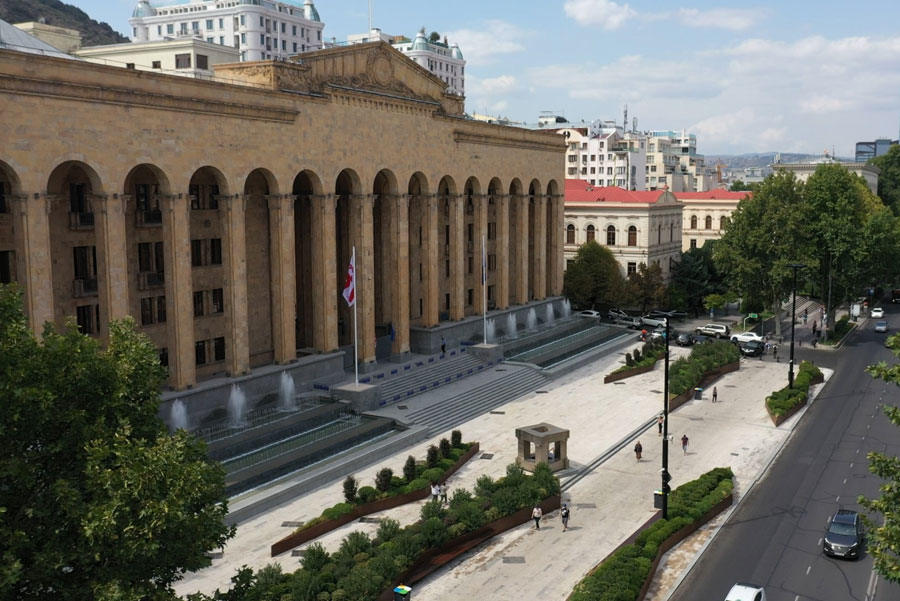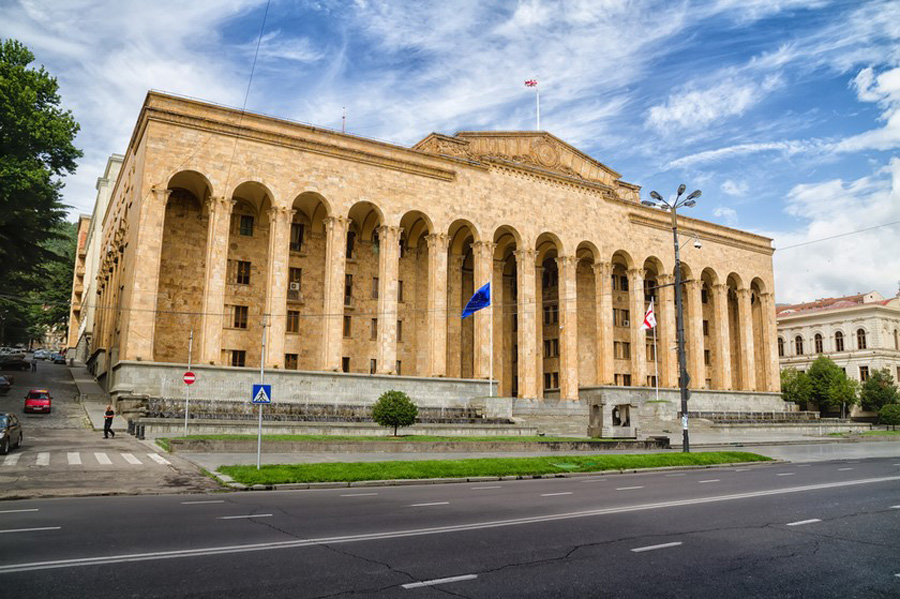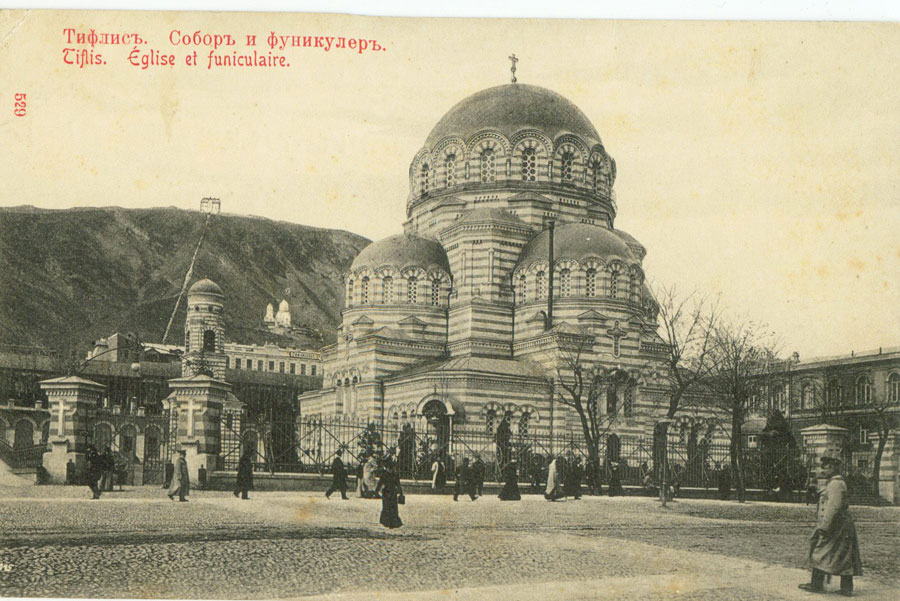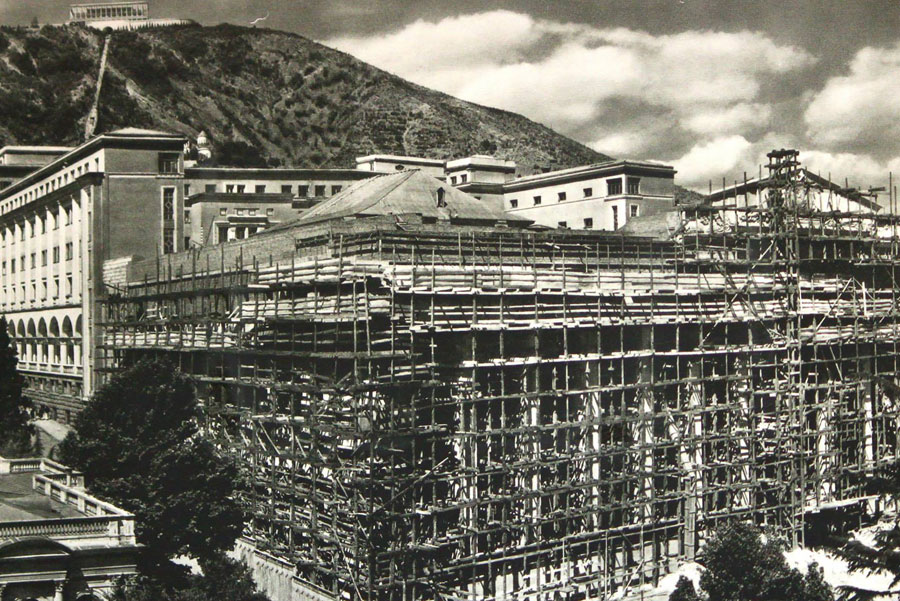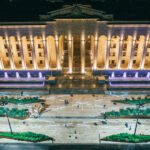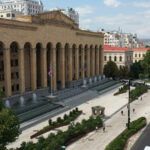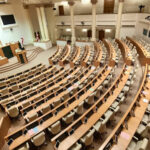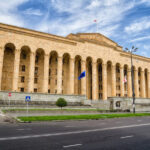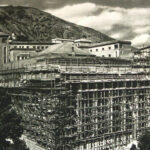Parliament of Georgia
The Parliament of Georgia building is situated on Rustaveli Avenue, opposite the Kashveti Church, flanked by the First Public School and the Youth Palace. Noteworthy for its grand architecture, the structure reflects the imposing style characteristic of Soviet-era government buildings. It once housed the Supreme Council of the Georgian SSR.
The Parliament building occupies the site where the “The Soboro” military temple stood from 1865 to 1866, commemorating Tsarist Russia’s conquest of the Caucasus. Following the Soviet era, the temple was dismantled, and construction of the Government House commenced in 1938, concluding in 1965. Architects Kokorin, Lezhava, and Nasaridze were the masterminds behind the project.
The architecture incorporates golden tuff, a material intrinsic to national architecture, along with intricate ornamentation. This structure, coupled with its surroundings, bears witness to Georgia’s protracted struggle for independence. Notably, the graves of cadets who lost their lives during the Soviet occupation are interred at the building’s base.
The Parliament building also holds historical significance due to the tragic events of April 9, 1989. The site became a focal point when the Soviet Army dispersed a peaceful rally, resulting in casualties. In commemoration, a memorial dedicated to the victims of April 9 now stands prominently in front of the Parliament, serving as a poignant reminder of Georgia’s tumultuous journey to independence.
Structure and Composition: The Georgian Parliament operates on a unicameral system, comprising a single chamber known as the Parliament of Georgia. It consists of members elected through a mixed-member proportional representation system, ensuring a diverse and representative body. The parliament is responsible for legislative initiatives, approving the state budget, and overseeing the executive branch’s actions.
Key Functions and Powers: The parliament holds considerable power in Georgia’s political system. Its responsibilities include passing laws, approving the government’s action plans, and conducting parliamentary hearings. Additionally, the parliament plays a crucial role in foreign affairs, ratifying international treaties and agreements.


